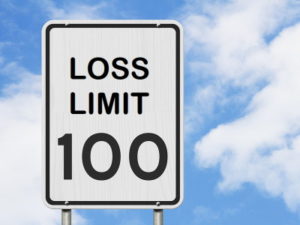Why Do Betting Sites Want To Know Your Occupation And Earnings?
 With new laws incoming around affordability checks for gambling some operators are already starting to ask their customers highly personal details about their jobs and earnings. Recently you may have noticed when logging into some sites that you may see a pop up box or receive a message asking you to tell them your occupation and salary / earnings bracket. This is not something that can be ignored either, with sites warning that accounts may be suspended if details are not provided or are not accurate.
With new laws incoming around affordability checks for gambling some operators are already starting to ask their customers highly personal details about their jobs and earnings. Recently you may have noticed when logging into some sites that you may see a pop up box or receive a message asking you to tell them your occupation and salary / earnings bracket. This is not something that can be ignored either, with sites warning that accounts may be suspended if details are not provided or are not accurate.
While many customers have said that they don’t want these checks, and some have said they would consider unregulated sites to avoid them, the fact is that it will soon be a reality for all UK customers to continue betting with UK licensed betting sites. This will apply to sportsbooks, casinos, bingo sites, lottery and pretty much all forms of gambling.
It will likely coincide with a ban on VIP schemes, further restrictions around advertising and sponsorship in sports and potentially deposit / loss limits, restrictions on spin speeds for slot games, a ban on autoplay features and tighter monitoring of customer behaviour with more interventions from the operator (e.g. pop up warnings, session limits, etc).
Why Do Betting Sites Need To Know What You Earn?
 While fixed limits on deposits and / or loses have been proposed operators would prefer flexible limits suited to players and punters individually. This is one reason why they are applying these new occupation and earnings checks before new laws have even been passed. Sites are under pressure to not allow people to gamble more than they can afford and one way companies are trying to do this is by asking you for your job and salary bracket to help them set personalised limits for customers.
While fixed limits on deposits and / or loses have been proposed operators would prefer flexible limits suited to players and punters individually. This is one reason why they are applying these new occupation and earnings checks before new laws have even been passed. Sites are under pressure to not allow people to gamble more than they can afford and one way companies are trying to do this is by asking you for your job and salary bracket to help them set personalised limits for customers.
Many customers will find this highly invasive, especially as gambling is a leisure pursuit and not like buying a house, where you would have to prove your income and employment status. The requests right now are still elective, i.e. you don’t have to provide this info, but sites are saying that your account may be suspended if you don’t.
Even if accounts are not suspended if you refuse to provide this info they will likely assume you have little or no earnings and will therefore set deposit/loss limits accordingly on your account. Likewise there is nothing to stop you providing false information, saying you earn £100k rather than £20k, for example, which will naturally make your limits higher. Warnings displayed, though, do say if you do not provide accurate info then your account could be suspended. How they will check if the values you have provided are accurate or not is unknown but ultimately they are covering their backs by putting the onus on you to provide this information.
Sites, therefore, do not instrincally need to know your job and how much money you earn but by not providing this data you could either lose that account or end up with the lowest limits available. Once you set a limit your job and salary you are also stuck with this for a period of time. Like existing opt-in deposit limits these can only be changed with notice, usually 7 or 30 days.
The new laws surrounding what exactly companies will need to do with regards to affordability checks are unknown but these checks will be coming in in some form or other in the next 12 months or so. Operators that have taken this early step are clearly hoping to show they can manage affordability using voluntary forms, however, it is likely once new laws come in that you may have to also back this up with evidence, such as bank statements, P60’s, SA302’s etc.
What Limits Will Be Imposed?
 Recently Paddy Power and Betfair (owned by Flutter Entertainment) announced that they are setting a £500 monthly loss limit for under 25’s. Players under 25 who want to spend more than this need to go through a ‘detailed process’ that will require proof (i.e. bank statements, savings, employment records, etc) in order to exceed this limit.
Recently Paddy Power and Betfair (owned by Flutter Entertainment) announced that they are setting a £500 monthly loss limit for under 25’s. Players under 25 who want to spend more than this need to go through a ‘detailed process’ that will require proof (i.e. bank statements, savings, employment records, etc) in order to exceed this limit.
This is another example of ‘testing the water’ with many critics saying the level is still way to high, with the average gambler not able to afford to lose £450 or more in a month, and much less in the under 25 category. Critics argue that even a £100 a month loss limit is too high for many and that self-regulation does not work. The industry has come up with many incentives to get ahead of legislation over the past few years, including voluntary agreements on advertising, increasing the gambling levy, regulating VIP schemes and now imposing limits. Each time, however, the industry draws criticism that they are in effect ‘marking their own homework‘.
It is likely that when new rules come in that deposit or loss limits will be automatically imposed for all customers. Let’s say for arguments sake this is £100 a month. Customers that then want to exceed this will have to prove they can afford to, which will ultimately mean sending in sensitive financial documents and records to betting companies. Something many people will not be comfortable with.
Deposit limits are more likely than loss limits as loss limits are subjective, e.g. if you place a bet in January but the bet doesn’t lose until February then which month is that loss counted in? Either way these are a future reality people will have to deal with.
What If You Want To Gamble With No Limits?
 If you earn enough money or have enough savings and you can prove to a gambling company you can afford to lose a lot of money then you will still be able to do so. You will have to prove that you can afford this in advance.
If you earn enough money or have enough savings and you can prove to a gambling company you can afford to lose a lot of money then you will still be able to do so. You will have to prove that you can afford this in advance.
Many people already gamble with unlicensed betting sites and surveys have shown that more people will consider this if more regulations, such as affordability checks, are brought in. By betting with an unlicensed site there will be no deposit / loss limits, they will probably not even require ID to open an account and start betting.
However, this is not something we would advise you to do. The fact these sites are unregulated means they don’t need a license and while they shouldn’t legally accept UK customers many still do, because they are based in locations where they can’t be held accountable. Ultimately this means you have no protections in the law whatsoever. Therefore, if the company decided not to pay you out, steal your money, or worse, sell your personal or banking details to fraudsters, then there is little you can do. Many of these unregulated sites are also known to be linked to terror and other illegal operations.
Many unlicensed sites will have better odds, because they don’t pay tax or put any money into responsible gambling measures, they also offer crazy sign up bonuses. Some do this semi-legitimately whereas others are out there simply to steal your money. It may seem like an option to bet with an unlicensed site if you don’t want to provide sensitive details to a licensed bookie, but in the end the balance of risk is simply not worth it.



